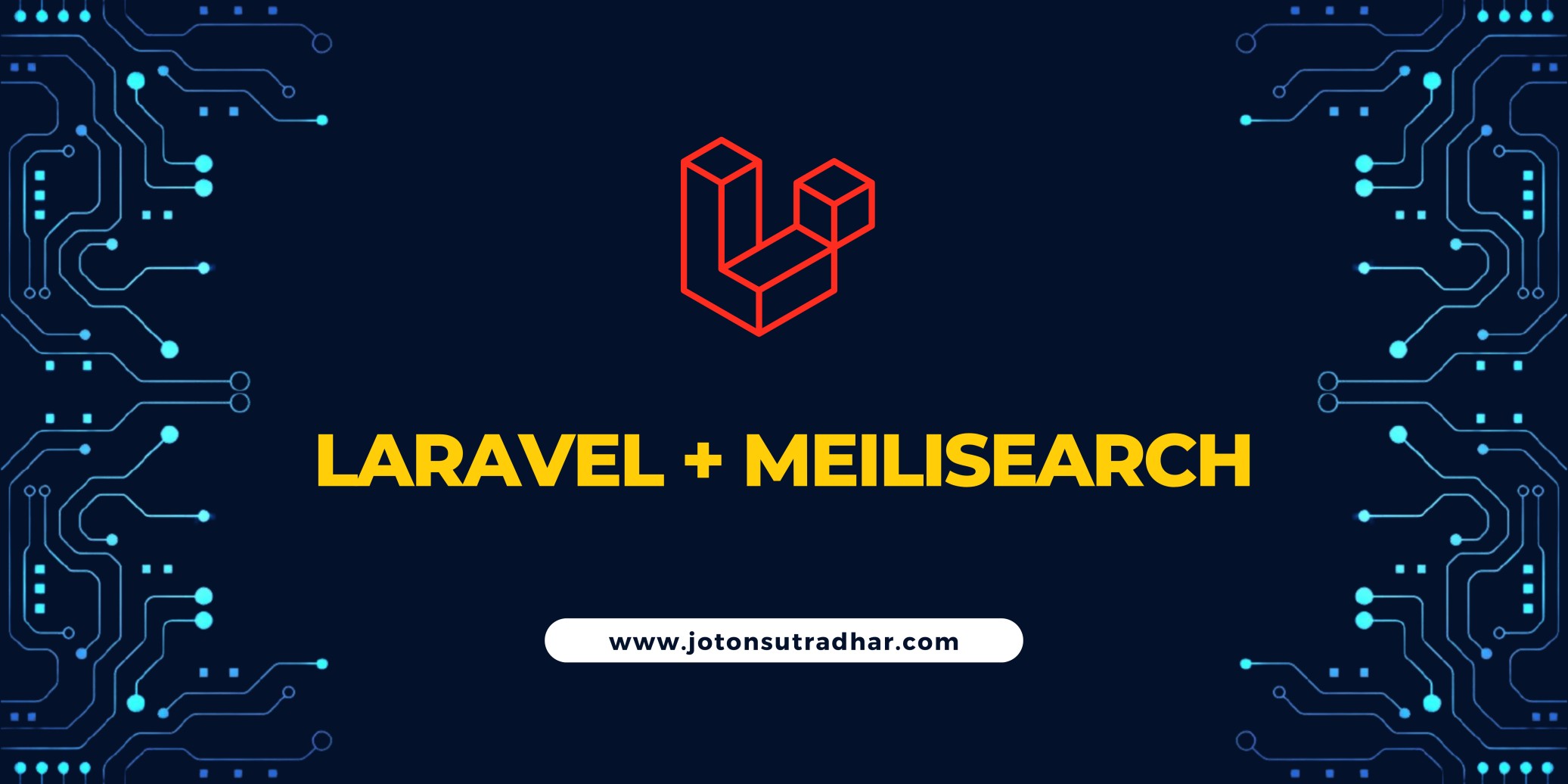Integrating Meilisearch With Laravel Using Docker

If you're building a Laravel application and want blazing-fast search capabilities, Meilisearch is one of the best tools you can integrate. In this post, we’ll explore what Meilisearch is, why you should consider it, its use cases, pros and cons, and how to integrate it into a Laravel project using Docker.
🧠 What is Meilisearch?
Meilisearch is an open-source, lightning-fast search engine designed for modern web apps. Written in Rust, it provides out-of-the-box full-text search with typo tolerance, customizable ranking, filters, and near-instant results.
It’s ideal for applications where quick and relevant results are key to the user experience.
🤔 Why Meilisearch?
So, why choose Meilisearch over other tools like Algolia or Elasticsearch?
-
Developer-friendly: Meilisearch has a simple, RESTful API and integrates beautifully with Laravel using Laravel Scout.
-
Blazing fast: Search results are returned in milliseconds, providing an instant feel to your UI.
-
Zero-config startup: With Docker, you can be running in less than a minute.
-
Built-in features like typo tolerance, ranking, filtering, and synonyms with little to no setup.
-
Self-hosted alternative to Algolia: No API rate limits or high costs.
-
Great for user-facing search: Tailored for applications that require fast, fuzzy search with good UX.
🛠 Uses of Meilisearch
Meilisearch is ideal for:
-
E-commerce platforms: Search products by name, category, brand, etc.
-
Blogs & content systems: Instant article and tag search.
-
CRMs & dashboards: Quick filtering across tables.
-
Directories & job boards: Faceted search and filters across multiple fields.
-
Any Laravel app that benefits from fast search.
✅ Pros and ❌ Cons of Meilisearch
✅ Pros:
-
Extremely fast and lightweight
-
Easy to set up and scale
-
Built-in typo tolerance and filters
-
Instant indexing
-
RESTful and easy API
-
Self-hosted and free
❌ Cons:
-
Uses in-memory indexing (can be memory-intensive for very large datasets)
-
Not suitable for complex analytics-heavy queries
-
Still growing in community and ecosystem
-
No official horizontal sharding yet (in development)
🐳 Integrating Meilisearch with Laravel Using Docker
Step 1: Docker Compose for Laravel + Meilisearch
Create a docker-compose.yml file that includes both the Laravel app and Meilisearch service in the same network:
version: '3.8'
services:
app:
build:
context: .
dockerfile: Dockerfile
image: laravel-app
container_name: laravel-app
restart: unless-stopped
ports:
- "8000:8000"
volumes:
- .:/var/www
depends_on:
- meilisearch
networks:
- laravel
meilisearch:
image: getmeili/meilisearch:v1.8
container_name: meilisearch
environment:
- MEILI_MASTER_KEY=masterKey
ports:
- "7700:7700"
volumes:
- ./meili_data:/meili_data
networks:
- laravel
networks:
laravel:
driver: bridge
⚠️ Make sure your Laravel .env points to http://meilisearch:7700 (Docker container name) instead of localhost.
Step 2: Install Laravel Scout & Meilisearch PHP SDK
Run:
composer require laravel/scout meilisearch/meilisearch-phpThen publish the config:
php artisan vendor:publish --provider="Laravel\Scout\ScoutServiceProvider"Step 3: Configure .env and config/scout.php
Update your .env:
SCOUT_DRIVER=meilisearch
MEILISEARCH_HOST=http://meilisearch:7700
MEILISEARCH_KEY=masterKeyIn config/scout.php, set:
'driver' => env('SCOUT_DRIVER', 'meilisearch'),Step 4: Make a Model Searchable
Add the Searchable trait to your model:
use Laravel\Scout\Searchable;
class Post extends Model
{
use Searchable;
public function toSearchableArray(): array
{
return [
'title' => $this->title,
'body' => $this->body,
];
}
}Step 5: Import Data
php artisan scout:import "App\Models\Post"Step 6: Perform a Search
$results = Post::search('Laravel')->get();🧪 Final Thoughts
Meilisearch brings performance and simplicity to Laravel search like never before. With features like typo tolerance and instant results, it's perfect for modern apps needing real-time, full-text search.
Using Docker makes setup seamless — and with Laravel Scout, you can be up and running in just a few commands.
📝 To learn more about Laravel Scout visit the documentation Laravel Scout
Ready to power up your Laravel app with real-time search? Give Meilisearch a try!
Happy Coding
Related Blogs
Integrating payment gateways like Stripe, SSLCommerz, or Bkash is a common need in web development. But if not done right, it can lead to messy, repeated code and poor resource management. In this blog, we’ll explore how to implement a clean, scalable, and reusable payment system using the Singleton Pattern, Strategy Pattern, and Dependency Injection in Laravel.
Alright, Laravel developers, let's talk shop. We love Laravel for its elegance, convention over configuration, and how quickly it lets us build. But as our applications grow, even in a framework as opinionated as Laravel, we can fall into traps: repeating the same logic across different "service" classes, inconsistent data handling, or struggling to manage complex workflows.
Queues are essential for building scalable and performant Laravel applications. Whether you're sending emails, processing files, or executing time-consuming tasks, queues offload work and keep your app fast. But how do you monitor and manage them effectively?